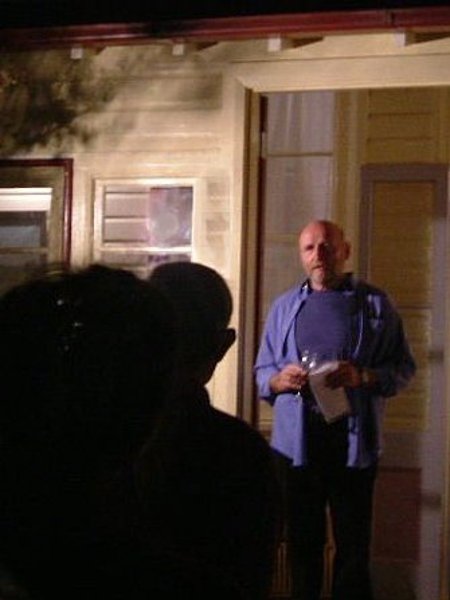John Bailey explains his approach to writing
 |
John at the launch of Lost German Slave Girl in Australia. |
My intended audience is the general public, the average reader. Thus in all my books, I make detours to expand on bare historical sources to inject a sense of the times and to reflect upon the thoughts of the persons involved. All historians do this; I do it more than most. Academics claim they never do it. This is not to say that I have let fancy fly. My books are not works of fiction. They are as true as I can make them, as I understand the truth of what happened. The fascinating characters that I write about lived in a bewildering, confused, inconsistent moral haze, just as we do, and rather than standing outside that haze, looking in, I plunge inside so I could imagine what it was they were looking at.
I also question everything previous writers have said about the topic. In this regard, being an ex-lawyer was both an advantage and a hindrance. An advantage because the courtroom experience encourages one to question the obvious and doubt the glib. Thus I was used to digging deeper. A hindrance because lawyers are often the most tedious of writers. They are taught to write legal opinions that cover every eventuality and often drown their conclusions in qualifications and exceptions. They use jargon when a smaller word would do just as well. All this had to be unlearnt.
I make a number of false starts in my writing. For example I never intended to write a biography of John McDouall Stuart. My publishers suggested I put together the story of the Ghan railway which goes from Adelaide to Darwin. I began this project thinking that I would describe the way of life of the Aboriginal people who had lived in the desert since the Dreamtime, the building of a telegraph line across the continent, the path taken by explorers, particularly John McDouall Stuart in 1858-1862 and the creation of an intricate network of camel-pads into the interior by Afghan cameleers from about 1865 until 1929. In fact I wrote such a book, but in the process Stuart in his rumbustious, alcoholic way began to push everyone else out of the way. Here was a character, larger than life, yet complex and bewildering in his self-destruction. In the end I surrendered to him and let him take over.
